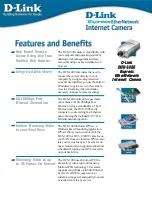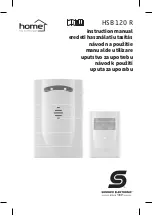
- 46 -
E
Enterprise
network
An enterprise network consists of collections of networks
connected to each other over a geographically dispersed
area. The enterprise network serves the needs of a
widely distributed company and operates the company’s
mission-critical applications.
Ethernet
The most popular LAN communication technology. There
are a variety of types of Ethernet, including 10Mbps
(traditional Ethernet), 100Mbps (Fast Ethernet), and
1,000Mbps (Gigabit Ethernet). Most Ethernet networks
use Category 5 cabling to carry information, in the form
of electrical signals, between devices. Ethernet is an
implementation of CSMA/CD that operates in a bus or
star topology.
F
Fast Ethernet
Fast Ethernet, also called 100BASE-T, operates at 10 or
100Mbps per second over UTP, STP, or fiber-optic
media.
Firewall
Firewall is considered the first line of defense in
protecting private information. For better security, data
can be encrypted. A system designed to prevent
unauthorized access to or from a private network.
Firewalls are frequently used to prevent unauthorized
Internet users from accessing private networks
connected to the Internet, especially Intranets all
messages entering or leaving the intranet pass through
the firewall, which examines each message and blocks
those that do not meet the specified security criteria.
G
Gateway
A gateway links computers that use different data
formats together.
Group
Groups consist of several user machines that have
similar characteristics such as being in the same
department.







































